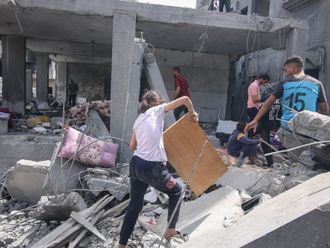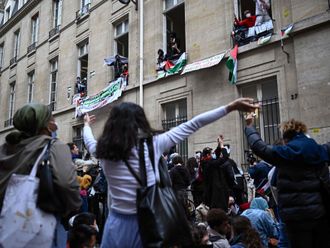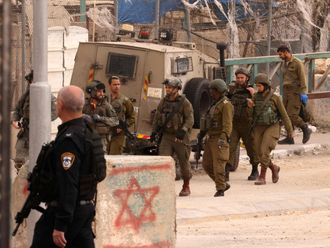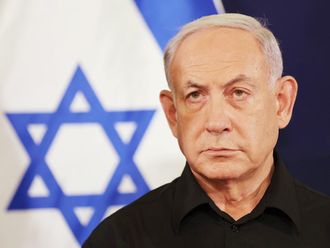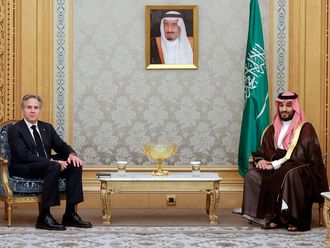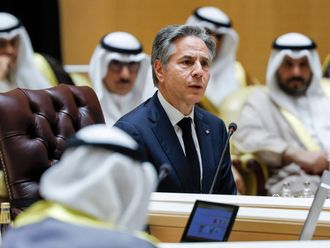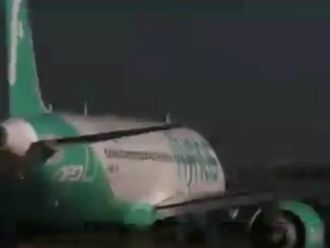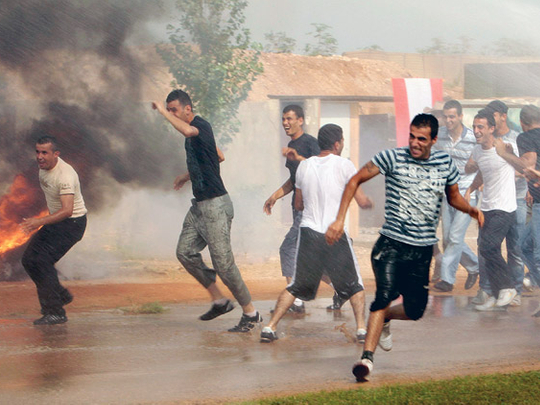
Beirut: Escalating tension in Lebanon over a tribunal investigating the assassination of statesman Rafik Hariri has pushed rival politicians to call for calm to prevent the country plunging into renewed turmoil.
But the heated rhetoric is unlikely to die down in the run-up to indictments expected against members of Hezbollah for alleged involvement in the 2005 attack that killed Hariri and pushed Lebanon into crisis.
The fragile unity government has been shaken by disputes over the UN investigation including argument about its funding and controversy over ‘false witnesses' and over a pro-Syrian general who was jailed in connection with Hariri's killing.
"The political rhetoric will continue, and possibly escalate as we get closer to the date that the indictments are issued, which is expected to be at the end of this year or early next year," a senior political source told Reuters.
"What is limiting the escalation [from turning violent] is the Syrian-Saudi understanding that was established at the three-way summit in Beirut [in July], which emphasised support for the national unity government and ruled out use of force in the streets."
Credibility questioned
Hezbollah has denounced the UN tribunal as an Israeli project, denied involvement in the attack and blamed Israel for killing Hariri, whose son Sa'ad Hariri now leads the unity government.
The Iranian-backed group and its allies have also sought to head off the indictments by questioning the credibility of the investigation and accusing it of relying on false testimony and telephone records that Israeli spies could have manipulated.
In a show of force at Beirut airport over the weekend, which was condemned by political opponents, Hezbollah officials welcomed a pro-Syrian general at the centre of the dispute over false testimony and escorted him from the airport to prevent his possible arrest.
General Jamil Al Syed, who was jailed for four years in connection with the 2005 bombing but released by the tribunal for lack of evidence last year, had accused Sa'ad Hariri's Future movement of being behind the false testimony implicating him.
After rumours emerged Syed may be summoned for questioning upon his arrival to Beirut from Paris, Hezbollah officials and their armed bodyguards surrounded and escorted him to the VIP airport hall where he held a news conference.
President Michel Sulaiman said the incident "gave the impression that we have reached a stage fraught with dangers".
Political scientist Hilal Khashan said Hezbollah's action showed it was a "state within a state".
He said the group had told Hariri "very clearly and bluntly to denounce the tribunal and forgo all cooperation with it or face the consequences".
Syria has repeatedly denied involvement in the assassination which provoked an international outcry against it and forced the country to end its three decade military presence in Lebanon.
Hariri has since mended relations with Damascus, visiting Assad several times and emphasising Lebanon's need for strong ties with its bigger neighbour.
Turnaround
And in a stunning turnaround, Hariri said he was wrong to accuse Syria of killing his father and that the charges against Damascus had been politically motivated.
"He already made a major concession when he exonerated Syria from the assassination. He risks losing his entire Sunni constituency if he discredits the tribunal," Khashan said, referring to Hariri's support base that brought his party to power in 2005 after his father's killing and again in 2009.
The expected indictments have so charged the atmosphere that the leaders of Syria and Saudi Arabia visited in July seeking to avoid a repeat of the violence in May 2008 when fighting between Hezbollah and Hariri supporters killed about 80 people.
UN Special Representative for Lebanon Michael Williams said the recent rhetoric had generated concerns for Lebanon's stability and called for "rational dialogue between all sides".
Despite the efforts to prevent violence, the calls for calm may fall on deaf ears. "Since the civil war in '75 politicians and militia leaders have called for calm, but actions on the ground are another thing," Khashan said.


